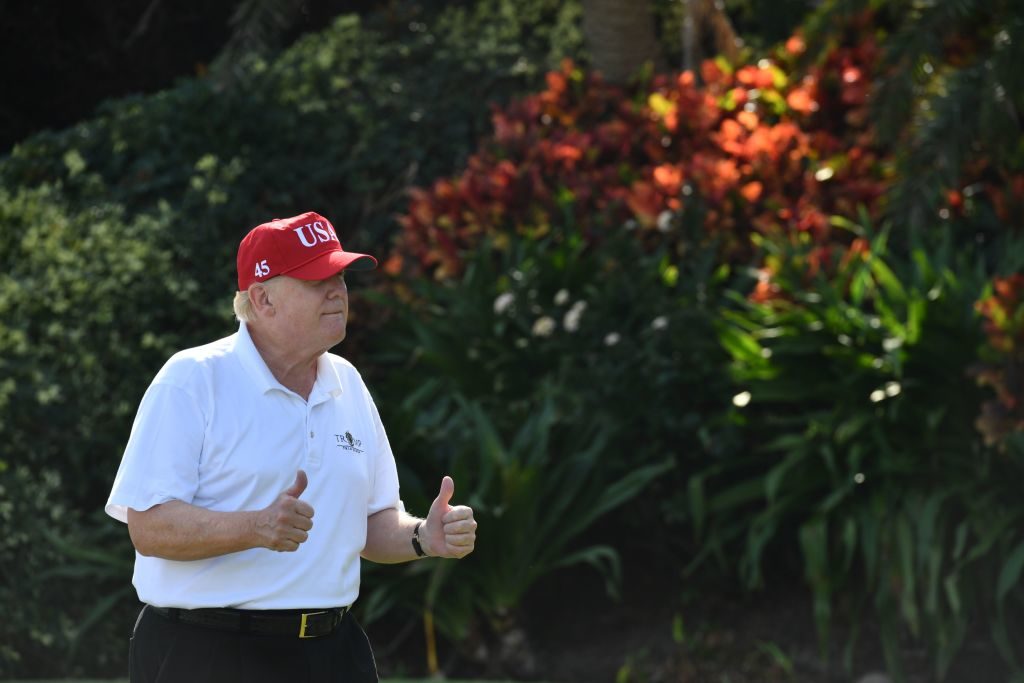Politics
Why Did the Firm Behind the Trump-Russia Dossier Implicate Art Collector Dmitry Rybolovlev in Its Testimony?
The controversy centers around a Palm Beach estate that Rybolovlev purchased from Trump for $95 million in 2008.
The controversy centers around a Palm Beach estate that Rybolovlev purchased from Trump for $95 million in 2008.
Eileen Kinsella

Some art world observers were surprised to see the name of Russian billionaire art collector Dmitry Rybolovlev pop up in the ongoing investigation into President Donald Trump’s ties to Russia.
In transcripts of testimony before the House Intelligence Committee last August, Glenn Simpson—who co-founded Fusion GPS, the research firm that commissioned the salacious dossier on Trump—homed in on, among other things, a pricey 2008 real estate deal in Palm Beach, Florida.
Rybolovlev paid $95 million for an oceanfront property owned by Trump, which he purchased for just $41.4 million four years earlier. According to Simpson’s testimony, Rybolovlev “purchased a derelict estate at an extreme markup in Florida.” (Politico detailed the real estate deal in a lengthy 2016 story, “Trump & the Oligarch.”)
In his Congressional testimony, Simpson said that his initial suspicion was that Rybolovlev was seeking to hide money from his ex-wife. “[T]he depiction of him as a sort of reckless big spender was pretty thoroughly developed in the press,” Simpson said in the testimony. “So, I mean this guy was spending money like a drunken sailor on all kinds of things, and people were ripping him off in art deals. So that was my original take on this. Also, when we first heard about it, it didn’t fit with my timeline of when Trump seemed to have gotten deeply involved with the Russians.”
But Simpson later shifted his views when he realized, according to the testimony, that the transaction fit within the “first trimester of the Trump-Russia relationship, in that it actually fit in pretty well with some of the early things that had happened.”
But is it all much ado about nothing?
“The property in Palm Beach was acquired by the Rybolovlev family trusts in 2008 as an investment,” a spokesperson for Rybolovlev told artnet News. “As recent transaction and listing records show, there is every prospect that the property will yield a good return. As we have stated repeatedly: Mr. Rybolovlev has never met Donald Trump and has no connection to him or any of his advisers.”
Fusion GPS did not respond to artnet’s request for comment.

US President Donald Trump at Trump International Golf Course in Mar-a-Lago, Florida, on December 29, 2017. Photo: Nicholas Kamm/AFP PHOTO/Getty Images.
Rybolovlev demolished the existing mansion and carved up the 60,000-square-foot beachfront property into three lots. He has already sold off two lots for a combined $71.34 million in two separate deals this past October and November. The third lot is currently listed with an asking price of $42 million.
“It’s the most magnificent parcel of land on the Eastern Seaboard in the Continental United States of America,” real estate broker Lawrence Moens of Lawrence A. Moens Associates told artnet News. “There’s nothing that matches it.” (Moens also handled the sales of the two previous lots.)
If the latter lot hits its asking price target, then the total realized by Rybolovlev will be $113.3 million, or a profit of roughly $18 million, which is hardly meager for a ten-year investment
Simpson’s reference to Rybolovlev getting “ripped off” on art deals appears to refer to his ongoing feud with Swiss dealer and former freeport head Yves Bouvier, who the Russian collector says lied about prices for dozens of artworks he sold to him and defrauded him to the tune of $1 billion over the course of their 11-year relationship. Bouvier denies those allegations.
As has been widely reported, one of these works was Leonardo da Vinci’s Salvator Mundi (circa 1500), which became the most expensive artwork ever sold when Christie’s auctioned it for $450.3 million in New York this past November.
For the painting, Rybolovlev paid a reported $127 million to Bouvier, who had himself bought it for a reported $75-80 million in late 2013. Despite what appears to have been a $270 million eventual profit on the sale, Rybolovlev has continued his dogged pursuit of Bouvier, and more recently Sotheby’s, which helped broker that initial private sale, in international courts. Sotheby’s has fought vigorously against the legal actions and says there is no justification for Rybolovlev to involve it in his dispute against Bouvier.
According to reports, Simpson’s firm Fusion GPS hired Christopher Steele, a former British intelligence officer, to compile the information in a document that came to be known as the “Trump dossier” and was circulated among journalists, Congressional members, and FBI employees. The FBI reportedly began investigating the claims because they overlapped with information it had gathered on its own.